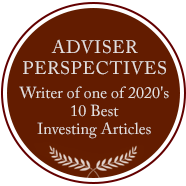
Categories
Resource Links
 GIR's Investing in the New Europe
GIR's Investing in the New EuropeBloomberg Press, 2001, "Sound, practical advice."
Wall Street Journal Europe
Rewarding Voyages
Barron’s Hedge Funds – A Monthly Report
Talking With James Harmon Chairman, Caravel Fund: In Harmon’s view, the U.S. is now displaying some characteristics long associated with developing markets.
FOR JAMES HARMON, AN UNEXPECTED CAREER MOVE brought remarkable investment opportunities in some of the world’s most remote markets–and led to the creation of a top-performing hedge fund.
Harmon, a veteran financial adviser and asset manager, has counseled governments from London to Rome to Moscow on economic reform and investment banking. Public figures including Jackie Robinson, Colin Powell and Warren Buffett have sought his advice. And he was at the helm of investment bank Schroder Wertheim when it purchased London-based Chappell Music, the world’s largest music publisher, and Then signed an obscure rock group called U2.
The 72-year-old Harmon now feels he has melded his various interests in his $142 million, NEW YORKBASED?? Caravel Fund: addressing the financial needs of some desperately poor nations with money from investors seeking to channel assets into what could be the fastest-growing markets.
Caravel–its namesake being Portuguese and Spanish sailing vessels used by famed explorers including
Columbus–is a focused hedge fund with only 32 long positions, and specializes in “frontier markets” such as
Kenya, Bangladesh and Lebanon.
The fund’s performance has been remarkable. Since its inception in October 2004 through June 2008, Caravel was up an annualized 29.55% in dollar terms. That’s 130 basis points a year, which outpaces the Morgan Stanley Capital International Emerging Markets index.
On an annual basis, Caravel Fund also tops the MSCI Europe, Austral Asia and Far East index by nearly 15 percentage points and the MSCI U.S. index by more than 23 percentage points.
However, the fund didn’t escape the recent market carnage. It’s now about 20% below its 2007 peak–a drop Harmon attributes to what he views as the temporary spiking of commodity prices, inflation, and interest rates. The good news, he maintains, is that unlike in previous meltdowns, the fundamentals of many developing economies remain sound, suggesting that recovery isn’t far off.
Since the beginning of the year, he’s been bolstering his cash position, which now accounts for 23% of his portfolio, in preparation for redeploying it when economic conditions improve.
Harmon says that he wouldn’t have ventured into frontier markets if it weren’t for an unexpected turn in 1997, at the end of the first Clinton Administration. Thinking he was being considered for Secretary of Commerce, he instead was offered the post of head of the U.S. Export-Import Bank, which makes billions in loan guarantees to developing nations to enable them to purchase goods and services from the U.S.
He’d barely warmed the chairman’s seat before he was confronted by the Southeast Asian markets’ collapse and massive credit defaults in Russia and Latin America. But he eventually saw many of the affected countries make fundamental changes that restarted and bolstered their economies.
When he took over the bank, 80% of its loan guarantees supported government-related ventures. By the time he left, in 2001, 80% was going to private companies as a result of privatization and increasing freedom in formerly regulated authoritarian economies.
Changes that he saw boosted his optimism about emerging markets. Not least was the ascendancy of well-educated government ministers; corporate leaders trained in the West; and the development of workforces hungry to excel. At the same time, foreign capital was once again itching to get in as emerging-market growth took off, at rates often four to five times those of the developed economies. Perhaps most compelling, he says, is that corruption is abating, business practices are improving, and there’s now a sharper focus on share price.
“Seeing this,” recalls Harmon, “I realized that healthy markets were changing behavior.” So several years after he left the Export-Import Bank, he set up Caravel Management, with the idea of tapping into one aspect of frontier markets: rising consumerism. Harmon saw increasing wealth driving demand for new goods and services, ranging from food and household staples, to infrastructure, improved housing, and financial services. Many of his investments, uncovered by co-portfolio manager Katiana Guzman MacNabb and Caravel’s
chief investment officer, Donald DeVivo, are plays on this theme.
For example, Alicorp [ALI/C.Peru], with a stock-market value of $840 million, is a leading Peruvian manufacturer and distributor of food and household goods that’s expanding via internal growth and acquisitions throughout Latin America. MacNabb sees the stock benefitting from Peru’s improving economy and rising consumer confidence. From 2005 through 2007, annual gross-domestic- product growth picked up from 6.7% to 9.9%, while unemployment fell from 13% to 7.5%. Alicorp’s profits jumped from 5% to 37% in the same time frame.
Another of the fund’s holdings is Ukrainian shopping-mall and warehouse developer Davento [4D5.Germany]. DeVivo, who tracks firms across eastern Europe and Asia, backed into the firm through a 2006 investment in VK Development, which later merged with Davento. Since the fund bought the shares, they’ve soared 80%. The company is one of Ukraine’s top mall developers, and DeVivo sees substantial upside in share price over the next two years, as stronger middle-class demand increases.
With a free float of just 10%, or $62 million, it’s difficult to purchase additional shares, especially since most investors are holding tight. “Davento is an example of the compromises one makes in venturing into certain frontier markets,” DeVivo observes, “giving up liquidity for access to a rare and very promising operation.” He is concerned by Ukraine’s soaring inflation, which has pushed overnight interest rates to 17%. But he thinks this is a short-term issue, and has confidence in the country’s strong growth rate, which has been running above 7%.
The growing importance of banking that complies with Islamic law is driving the profitability of Bangladesh-based Islami Bank (ISLAMI.Bangladesh). Its deposits and loan books have been expanding by an annual 30% over the past three years, while its profits have been rising by nearly 20% a year. One catalyst: savings remittances from Bangladeshis working abroad, which now represent an amazing 16% of their homeland’s GDP.
Since the Caravel Fund started purchasing shares of the $350 million market-cap bank in 2006’s second half, the stock is up 70%. Selling at only 1.5 times book value, with a return on equity of 15% to 20%, DeVivo regards it as cheap.
Before the Vietnamese market collapsed this year, the fund’s position in that country’s leading port operator, Gemadept [GMD. Vietnam],was up threefold since Caravel acquired it in August 2006. Now trading at 20% below his average cost, the stock still has huge potential, DeVivo argues. With imports and exports growing at more than 30% annually, Vietnam’s shipping-container capacity is limited to just two facilities. Gemadept operates the larger of the two, in Saigon, and is building another in Vung Tau.
It’s also expanding six additional ports. All this should accelerate the company’s longterm annualized net profit growth of 35%.
As for the risks in emerging markets, Harmon says that while they certainly are real, they’ve moderated somewhat because of rising hard-currency reserves, falling debt, expanding trade surpluses,
more stable currencies and faster growing economies.
Ironically, in what’s arguably the world’s most developed market, the United States, there now exist many of the types of fundamental weaknesses long associated with developing lands: high debt levels, a huge current- account deficit, weakening currency, and a systemic financial crisis. There are plenty of economic problems in Europe, too. In short, the seas around the developed markets aren’t exactly calm–neither are their growth rates anything to write home about.
Tags: Argonaut, Balestra Capital, Barnegat Fund, Closed-end funds, Commodity Trading Advisors, Finisterre, Global macro, Hedge funds, mutual funds, Partners, Risk management, Xerion Fund
This entry was posted on Wednesday, October 7th, 2009 at 4:47 am and is filed under FUNDS. You can follow any responses to this entry through the RSS 2.0 feed. You can leave a response, or trackback from your own site.
Leave a Reply
Warning: Undefined variable $user_ID in /home/globa525/public_html/wp-content/themes/eric_theme/comments.php on line 59
You must be logged in to post a comment.
Search
Opalesque Interview of Eric Uhlfelder






